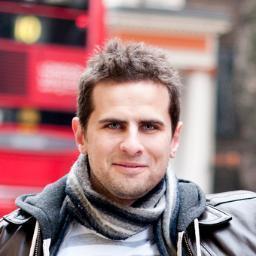Why I Quit My Phd In Economics
July 16, 2009 A lot of people ask me what happened at Princeton that made me want to leave the PhD program in economics there. The short answer is that I decided I didn't want to be an economist. The long answer is this: A PhD in any field is not something one should take lightly. It requires a lot of dedication to an (often narrow) idea, and not many people will care enough to try to understand what you are saying. This may seem obvious, but I guess it wasn't to me as I applied to graduate school. I applied to programs in economics perhaps foolishly thinking that I could put my love of math to use on problems that might actually impact people's lives. (Also I knew I didn't have the dedication or talent to pursue a PhD in mathematics, a common trait among econ PhDs). But I pretty quickly realized that producing something that the world could use to improve itself would be hard. Now don't get me wrong, I enjoy working on hard problems, as long as there's a reasonable expectation of success. But producing good economic work is a highly creative endeavor, and one at which I don't think I'm particularly skilled. I think that was probably my biggest realization; you can be very smart, do well in college, learn quickly, etc., but if you can't think creatively in your field you will have a hard time completing a PhD and pursuing a career as an academic. So I started to see things this way: in the distribution of creative economic thinkers, I am somewhere near the middle. Thus the probability of me producing some great economic work that changes the world is pretty low. The probability of me becoming an average economist is very high. And I don't like to think about what my life as an average economist would be. But Bill Easterly pushed me over the top. For those of you who don't know, Bill Easterly is an economist who has come out strongly against providing unconstrained aid to the developing world because the data shows that it doesn't work. Check out his wikipedia page here or his book here. I went to a talk he gave at Columbia when I was at Princeton. The gist of the talk was this: throwing aid at governments is useless more often than not, because there's too often no accountability to the donors and almost always no feedback loop to gather input from the citizens the aid is intended to help. He recommends supporting free enterprise and individual entrepreneurs and tearing down barriers to competition in developing countries, since a free market tends to automatically have accountability and feedback built in. So how is this related? Basically I began to see myself and a lot of other economists as falling into a "let's throw more money at the problem" kind of solution to economic issues. Except economists rarely throw money. They do spend a lot of time thinking about stuff and writing though. But why spend all this time on coming up with (for me) mediocre ideas when you could be out actually doing something? You could be out creating something that people will use. You could be adding value to the world, helping people live their lives more efficiently. Bill Easterly suggests supporting entrepreneurs in the developing world, so why not become an entrepreneur yourself and plug yourself into the accountability and feedback loop that the free market provides? This isn't meant to be a criticism of all academic economists though, and especially not those at Princeton. I have a lot of respect for those economists who are able to think incredibly creatively about the problems we face and who develop the tools to try to understand and solve them. I just know now that I'm not one of them. However I have absolutely no regrets concerning my time at Princeton. I finished all my coursework, wrote my second-year paper, and passed both of my general exams. I left with a Master's degree and I would do it all again if I had to choose. I learned a ton, and the economic concepts and jargon that I picked up have proven incredibly useful in thinking about other problems. I presume that will continue to hold true. The one thing that really sticks with me from economics is the overwhelming emphasis on optimization and efficiency. When applied to real-world problems rather than abstractions these ideas are very powerful, if not quite as clean. So what am I doing now? Writing software and thinking about how to leverage technology to improve the efficiency of the world, starting small of course. I get the feeling that I can really be creative and useful through software, and I don't think I'm wrong this time.Follow me on Twitter:
 Andrew Benton
Andrew Benton